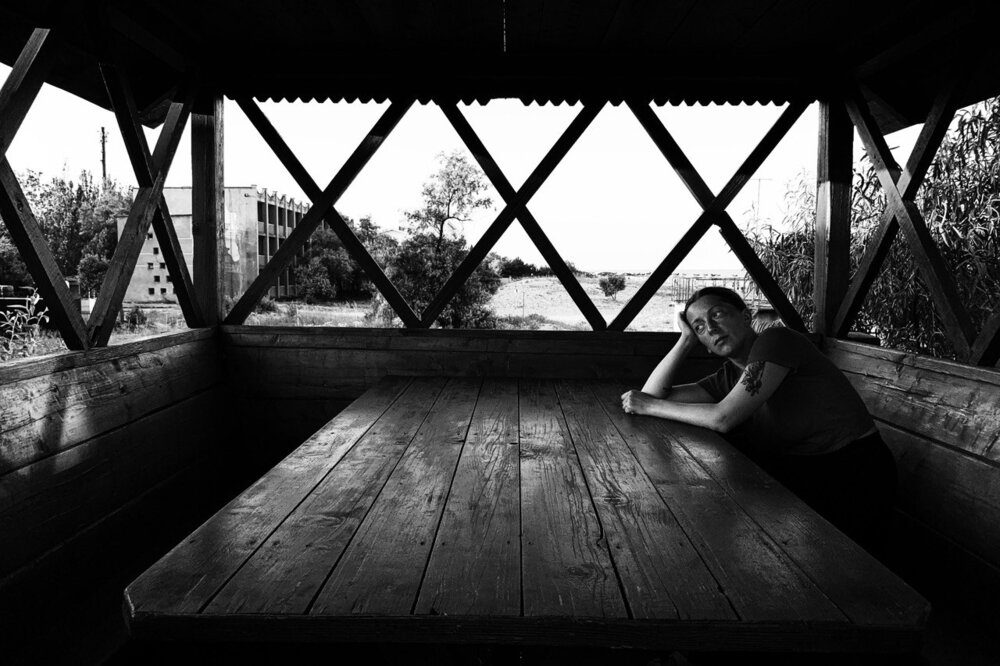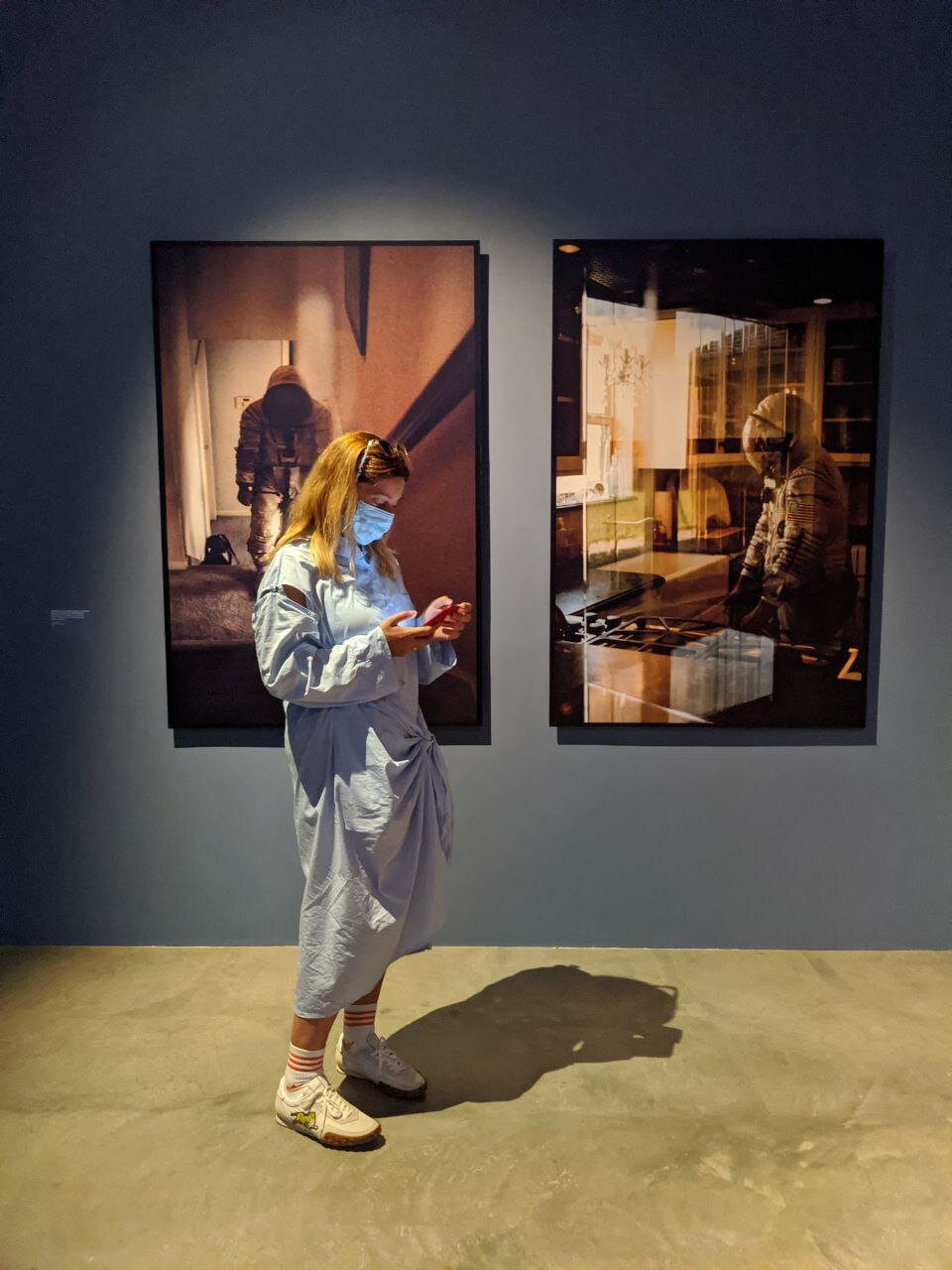Kateryna Sergatskova is a Ukrainian journalist. In 2018, she co-founded the online media platform Zaborona. They have published several important investigative pieces in the past year alone, most notably on the unsolved murder of Pavel Sheremet. Prior to her work with Zaborona, Sergkatskova contributed to various publications in both Ukraine and Russia, including Ukrayinsʹka pravda, Hromadske, Snob.ru, and Meduza. She co-authored the books “#EUROMAIDAN — History In The Making” (2014) and “War in Three Letters” (2015). The primary focus of her work as a journalist is on migration, political violence, and terrorism in the post-Soviet sphere. In an ongoing email exchange, we discussed how independent media functions in Ukraine, some of the problems facing Ukrainian civil society today, and why reading Gogol and Dostoevsky helps one understand the many differences between Ukraine and Russia.
Neil Postman, the great media theorist, wrote in Amusing Ourselves to Death that people were fearful of the world becoming like Orwell’s 1984 when they should have been more concerned by what was written in the pages of Huxley’s Brave New World. Where would you situate the post-Soviet sphere?
It is more relevant to talk about Evgeny Zamyatin’s science-fiction novel We, which was written long before Orwell’s and Huxley’s dystopias – in 1920 – and was first published in New York in 1924. The novel takes place in 1932, the year Brave New World was released. I read it more than once when I was in school.
He describes a society that exerts total control over the individual, where names are replaced by letters and numbers, and “the Benefactor” stands above all. The influence of this novel on a post-Soviet person can be seen, for example, in the play “Numbers” by Oleg Sentsov, and in general, everything that Zamyatin describes resonates in our gloomy, sad post-Soviet landscape 100 years later. It’s funny that when Zamyatin wrote “We”, the Soviet Literaturnaya Gazeta addressed him like this: “the country of socialism under construction can do without such a writer.” I think this is very much about all of us today. Writers who criticize reality get in the way of many. They want to do without them – without us.
Independent media platforms like Zaborona, which you co-founded, emerged following the 2014 Revolution of Dignity. What challenges do these platforms face when oligarchs, including those in the government, own major news channels?
At some point, we began to live in separate worlds. The oligarchic media live by their own rules which are not defined by professional journalism standards but rather something which resembles a well-controlled reality tv show. Independent media survive as best they can, trying to maintain their dignity. We are constantly asking for money from our readers, writing applications for grants, and looking for investors who, in my opinion, are already disillusioned with the Ukrainian media. At the same time, oligarchic channels follow what we are doing and often put the people featured in our stories on the air, and sometimes even ask us for permission or advice – but it is an exception to the rule. This is how people who still have some journalistic ambitions do work “from the inside”. Our media market is very meager, sad, and is constantly torn apart by civil strife.
The Ukrainian word “zaborona” can be translated to English as “ban” or “taboo”, and indeed, a lot of the stories you publish raise hard questions that most people would rather not talk about. What are the driving factors in choosing to investigate a story?
All our key topics are dictated by the interest in human nature and the desire to get to the heart of socio-political processes. We want to know why there are gray cracks next to the medieval castle, why the forest is cut down for the mall, why men are constantly trying to stop women from having control of their bodies, and when shameful phenomena such as pogroms and mass poverty will stop. It is important for us to know why we live so badly – and we want to change that.
You’ve recently done a lot of reporting for Zaborona on women from the post-Soviet sphere who ended up in the Islamic State and have even been trying to help one Ukrainian woman track down her daughter and grandson.
I have long been interested in the dark side of man. Why does someone decide to become a terrorist and intimidate the world? How does someone become the cannon fodder of ideologies? I was born in a difficult part of the world, where unresolved conflicts have lasted for a long time. In Ukraine, there was a cruel period in history, when the country was sawn between empires, and random people, families, generations fell under the knife. This is well described, for example, by Martin Pollack in his book of essays Poisoned Landscape and Timothy Snyder in Bloodlands. Everything in me demands to deal with this inner darkness. I want to know what drives people who embark on the path of jihad today. I want to understand why our land is still suffering from radical, destructive ideas, instead of preserving its beauty and learning to live in harmony with each other. After all, it is obvious that the main problem on Earth is not ideology, but the destruction of nature and irreversible climatic changes, that is, the consequences of the harm that we, humanity, have caused and continue to do to our home.

Photo: Roman Stepanovych
Your journalism career began in Russia. What brought you to leave?
At 19, I became the editor-in-chief of a regional newspaper that openly declared its opposition to the regime built by Putin. I had a fast-paced career and great achievements for my age, but it all ended when an FSB officer came to visit me. He asked me to publish some documents, and I refused – I didn’t even look at them. Then he said: if you behave this way, you will close. A couple of weeks later, they came to my office and made searches, seized all the equipment, and thwarted the return of our press license. Soon the newspaper was closed – and I moved back to Simferopol. It was in the summer of 2008. In August, Russia invaded Georgia, and I realized that I did not want to return to such a country and did not want to have anything to do with it, while such people were at the helm. I walked away from all this a long time ago.
In 2015 you officially became a Ukrainian citizen. Have you faced any challenges as a Russian-born journalist working in Ukraine during the war?
If I were to begin to list all of the examples then the reader would run out of patience. The main problem is that people don’t like complicated stories. I have told the press a hundred times that I have been living in Ukraine for a long time and consider myself Ukrainian, but they still say that I moved from Russia at the beginning of the war. They don’t do something as basic as read my Wikipedia page.
A big threat to civil society in Ukraine is that it has become customary to go after a person on the basis of their origin. When nationality or ethnicity becomes the main argument of the prosecution and the central piece of criticism, it means that such a society has erased the border of humanity. Such a society is capable of justifying murder. I stand on the position that murder cannot be justified by anything. Every death – even in war – is a tragedy and everyone needs to be investigated. Everything has causes and consequences.
How do Ukrainian journalists working in Ukraine, who must often rely on foreign funding and interact with their Western peers, navigate the realities of the country as opposed to the false narratives which are published in Russian propaganda outlets? Or by the Ukrainian diaspora, for that matter, which (like any diaspora) can sometimes possess what might be called a generational and geographical disconnect?
In order to navigate those realities, it is enough to live in them. Ukraine is a poor country, and there is a widespread need is to earn enough money to survive. The country often ranks alongside countries like Uganda and Bangladesh, for example, in terms of corruption and infrastructure. The historian Serhiy Plokhiy calls Ukraine “the Gates of Europe,” but most Europeans are unlikely to come to terms with the fact that Europe has such poor, crumbling gates. I think you yourself know very well how different life in Chernivtsi is from life in Budapest. Readers of Zaborona often contact us and tell us absolutely wild stories – they ask us, journalists, to help them because neither the police nor the security services of Ukraine respond to them.
Under these circumstances, Russian propaganda exists as a parallel world. In 2014-2015 we had to deal with that propaganda and fact-check many false stories. But the truth is always visible: the one who is looking for gold in the sand will always find it.
When asked by The Calvert Journal if writing in Ukrainian was the basis for being considered a Ukrainian writer, Serhiy Zhadan offered a beautiful but (I would say) pretty obvious answer. He said: “If a person sees themselves as Ukrainian and if they see themselves as belonging to Ukrainian culture, then they can be a Ukrainian writer”. So, let’s broaden that question a bit. What does it mean for you to be Ukrainian?
I can frankly say that I considered myself Ukrainian long before I received a Ukrainian passport. I agree that it is enough to consider yourself a part of Ukrainian culture to be a Ukrainian writer. To answer your question directly, in the simplest of terms, being Ukrainian means calling yourself Ukrainian, identifying yourself as such. Unfortunately, it does not always work out that way: somebody will definitely remind you where you are from, and if you are published in a language other than Ukrainian, they can tell you that you are an alien – or even the enemy.
Even before the war, this false notion of a “Brotherhood” between Slavic nations did not hold up to the many who understand that Ukraine and Russia are two very different countries. Considering that you have lived and worked in both countries, what are the most striking differences for you?
This difference between Russia and Ukraine can be expressed in the differences between the literary works of Fyodor Dostoevsky and Nikolai Gogol. Dostoevsky describes a gloomy, cold, and cruel country, where officials dominate over millions of small, powerless people – bureaucrats decide the fate of a person, and that person, despite the fact that it is unbearable for him, obeys, since this vicious cycle has already established.
Gogol is more interested in the mysticism that exists when people believe in miracles. Such people are capable of doing anything – either something beautiful or something incredibly monstrous, but in both cases, these people remain filled with an insane life energy. This is the energy that drives all unpredictable processes. If I am to choose one of the two, then I am definitely with Gogol.
Interviewed by Kate Tsurkan from Apofenie
Originally published at Apofenie






